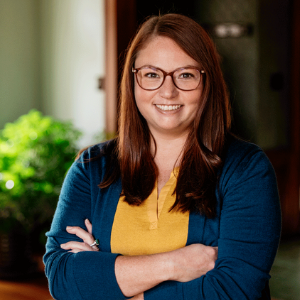Education Works

Education has always been a priority of CFNIL. Historically, more than a quarter of CFNIL’s grant making has supported education programs, projects and events. A bequest from Dr. Louis and Violet Rubin has significantly increased CFNIL’s grant making capacity. With increased grant making capacity, CFNIL will provide strategic funding under the banner of Education Works, a grant strategy that invests in endowments for scholarships, after-school programs, and career awareness initiatives. CFNIL expects to allocate considerable funds to Education Works in the coming years. Proposals for Education Works can request any amount, but proposals requesting more than $75,000 will be evaluated for their alignment with Education Works.
To apply for a grant that aligns with Education Works, apply to Community Grants in one of the two Education focus areas: Career Pathways or Complementary Education. Grant applications may also assessed for their ability to impact the Regional Education System.
What? Research that defines the needs of the region’s workforce in terms of skills and competencies.
Why? Provides educators, employers, and partners with targets for alignment.
What? Increased student access to and engagement with information about careers and the academic pathways that lead to those careers. Projects, programs, and events that expand and share information about careers and pathways.
Why? Provides students with more and better ways to explore and learn about careers. Makes more tools and materials available to teachers and guidance counselors for attracting and informing students’ interest.
What? Activities that unite the region and inspire collaboration among employers, educators, nonprofits and workforce/economic development partners.
Why? Collaborative efforts maximize resources and increase return on investment. Sustained, coordinated efforts produce quality outcomes.
Who can apply? Workforce development organizations, educational institutions, or nonprofit partners. (Nonprofits must submit the Pre-Authorization Form if working with or within a school district.)
What? School-approved programs that provide more learning hours, reinforce classroom instruction and advance student development through grants for capacity, coordination, outreach and transportation. This category includes before- and after-school, summer school, and enrichment programs.
Why? Research indicates that students who participate in after-school programs have better academic outcomes, better classroom behavior and fewer school absences. Safe and supervised after-school programs keep students away from destructive behaviors. After-school programs support families and reduce missed work.
Who can apply? Educational institutions or nonprofit partners. (Nonprofits must submit the Pre-Authorization Form if working with or within a school district.)
What? Collective effort in Boone, Ogle, Stephenson, and Winnebago Counties (the region) supporting a regional education system that continually develops healthy and productive citizens. E.g., investments in research, curricula and pedagogy design, educational materials, information systems, and communications.
Why? Shared grant outputs increase the regional return on investment. Focusing on student health and productivity along with system efficiency and connectivity creates more opportunities for students. Better talent development leads to economic success. Economic success supports our schools.
Who can apply? Collaborative cross-jurisdictional projects and programs working within a Collective Impact framework.
Questions about Education Works? Contact Sarah!

Vice President of Programs & Community Investment
Phone: 779-210-8207
Email: Sarah Lambert
